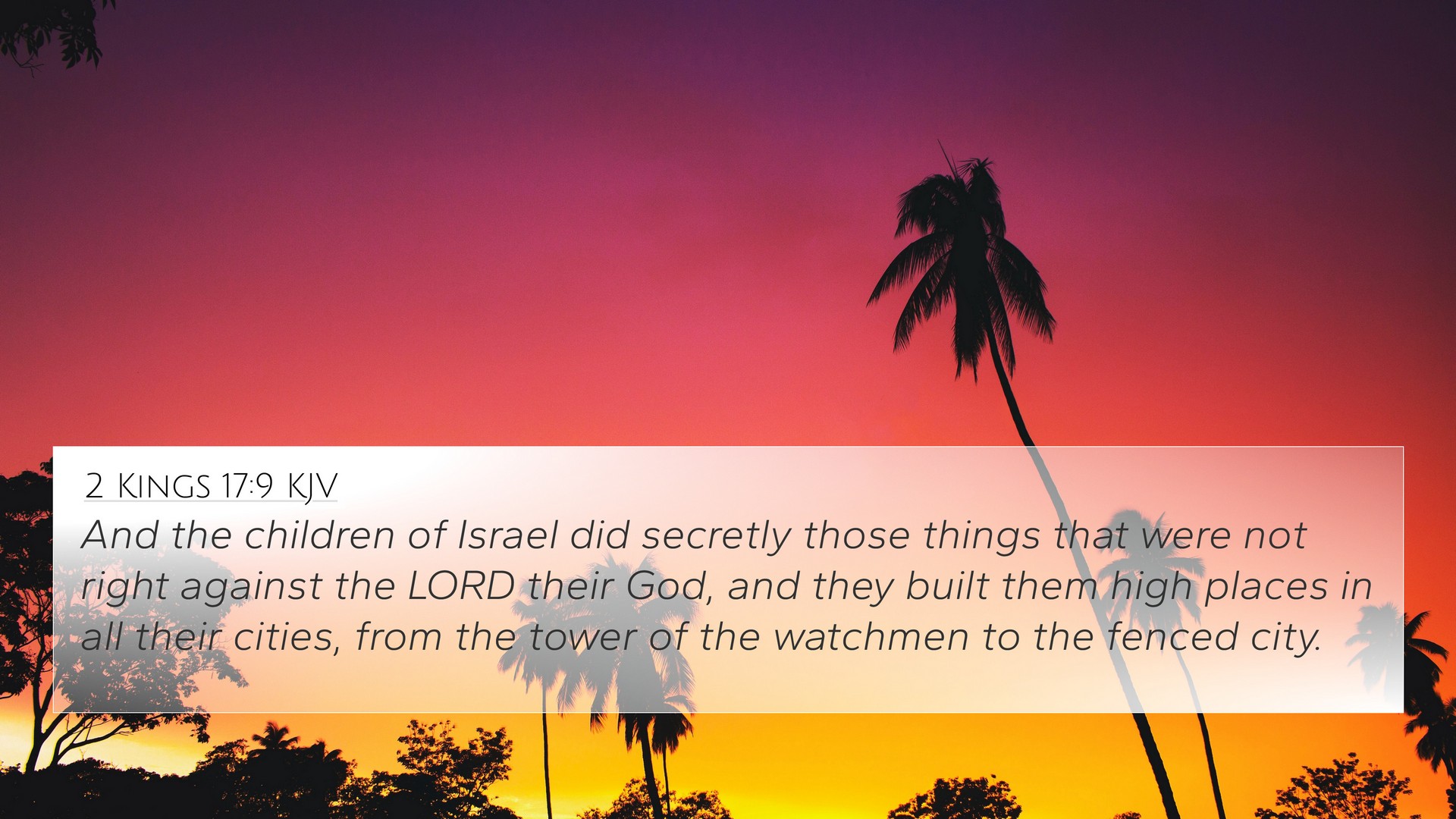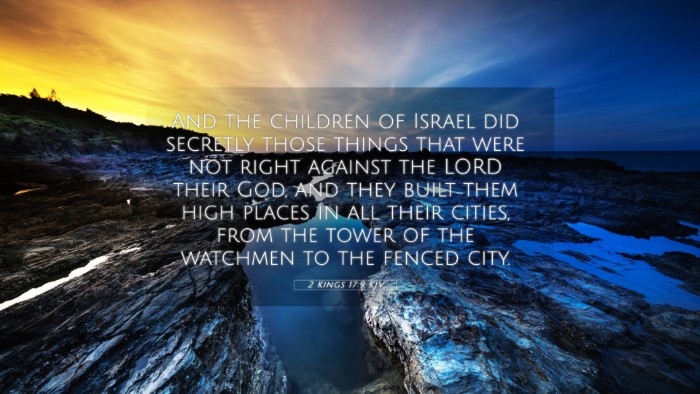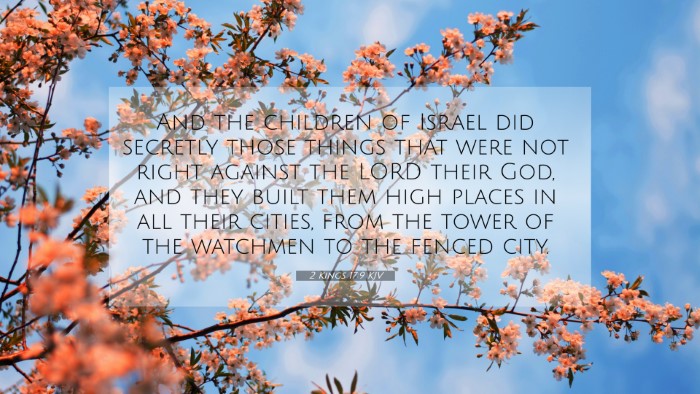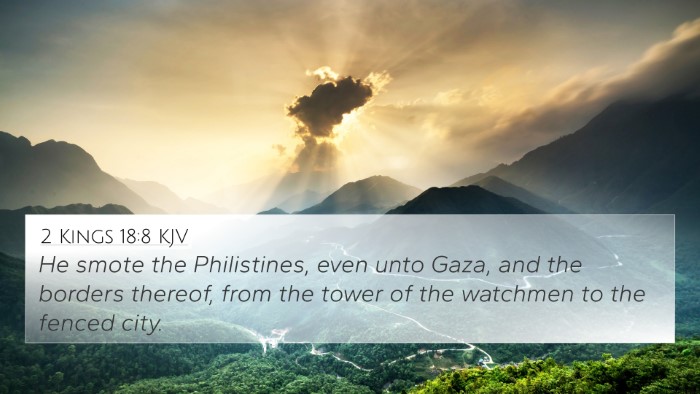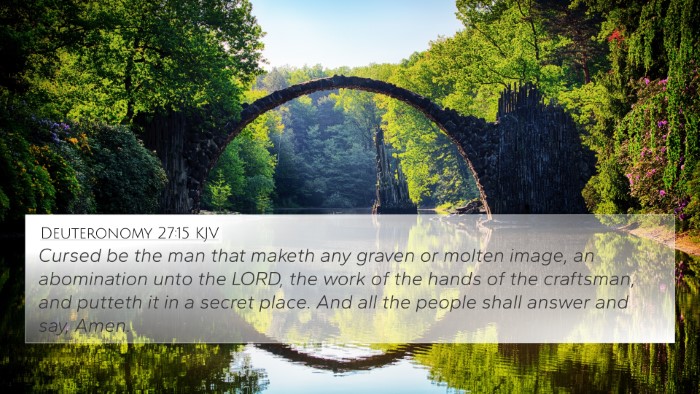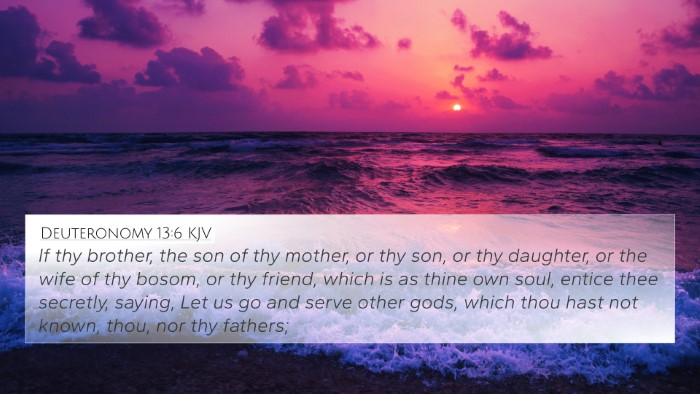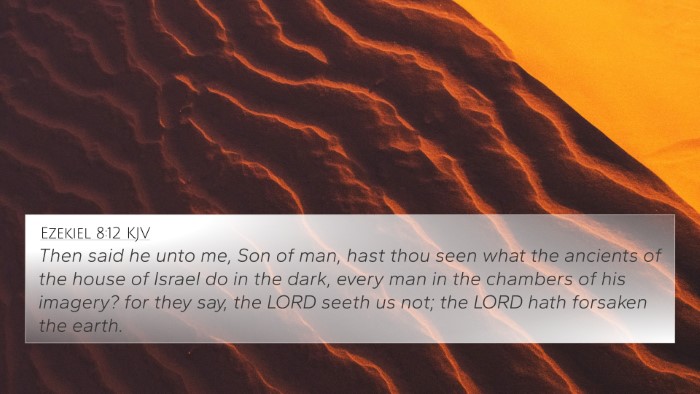Understanding 2 Kings 17:9
Verse: "And the children of Israel did secretly those things that were not right against the LORD their God, and they built them high places in all their cities, from the tower of the watchmen to the fenced city."
Meaning and Interpretation
The verse 2 Kings 17:9 sets a somber tone regarding the spiritual state of Israel during a tumultuous time. Notably, it highlights a deep-seated rebellion against God, depicted through their clandestine actions. The children of Israel engaged in activities contrary to God's commandments, building high places which served as sites of idol worship.
Insights from Commentaries
-
Matthew Henry:
Henry elucidates that the term "secretly" suggests their actions were both deliberate and deceitful, betraying a conscious knowledge that these practices were wrong. This indicates a significant moral decline, as the Israelites sought to distance themselves from divine commandments.
-
Albert Barnes:
Barnes notes that the high places represented not only a rejection of God's temple but also the allure of surrounding pagan cultures. The reference to "from the tower of the watchmen to the fenced city" illustrates the extent of their idolatry, infiltrating every stratum of Israelite society.
-
Adam Clarke:
Clarke emphasizes the metaphorical implications of "children of Israel." He observes that their secretive behavior signifies an internal conflict between their covenant relationship with Yahweh and their desires for foreign practices. This reflects the universal struggle with sin and temptation.
Thematic Connections
This verse opens various themes applicable across scriptures:
- Idolatry and Rebellion: The illustration of high places is a recurring theme in Israel’s history, showcasing the struggles against idolatry.
- The Consequences of Sin: This verse foreshadows the ensuing consequences that will follow, leading to the eventual fall of Israel.
- Divine Judgment: The secretive nature of their wrongdoing speaks to the providence of God's judgment upon unrepentant sin.
Cross-References
For further understanding and thematic connections, consider the following cross references:
- 1 Kings 14:23-24: It details the idolatrous practices in Judah, echoing Israel's disobedience.
- 2 Chronicles 33:3: This passage speaks of Manasseh’s reintroduction of idolatry in Jerusalem.
- Isaiah 1:29-31: Isaiah warns of the consequences of idolatry and false worship, reinforcing the themes found in 2 Kings 17:9.
- Jeremiah 2:13: Highlights how the Israelites forsake the fountain of living waters for broken cisterns.
- Ezekiel 14:6: Calls for repentance from idolatry, emphasizing the need for turning from their sins.
- Hosea 4:12: Points to how Israel consulted their own understanding rather than God, paralleling the secretive sins of 2 Kings 17:9.
- Acts 7:43: Stephen mentions the high places and idol worship, connecting historical Israel's actions with early Christian perspective.
Conclusion
This analysis of 2 Kings 17:9 serves as a poignant reminder of the spiritual struggles that persistently faced the Israelites—a theme that continues to resonate with believers today. The verse encapsulates the grave consequences of turning away from God and the importance of adhering to His commandments. Through the insights of various public domain commentaries and thematic connections, this verse encourages a profound understanding of the interplay between obedience, idolatry, and divine judgment.
Related Keywords for Further Study
- Bible verse cross-references
- Connections between Bible verses
- Linking Bible scriptures
- Comparative Bible verse analysis
- Bible verses that relate to each other
- Cross-referencing Biblical texts
- Thematic Bible verse connections
- Bible verse parallels
- Scriptural cross-referencing
- Inter-Biblical dialogue
